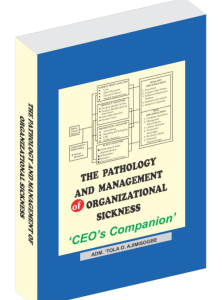SOCU FAILURE: HOW COMMUNITY DEVELOPMENT OFFICERS CAN SAVE THE TIDE~Ajemisogbe

By Tola O. Ajemisogbe.
In Delta State, the quest for effective social welfare coordination has encountered a significant roadblock in the form of the State Operation Coordinating Unit (SOCU). Despite noble intentions, SOCU’s approach has faltered, particularly in accessing accurate data crucial for reaching vulnerable members of society.
At the heart of the issue lies the disconnect between SOCU’s data-generation methods and the ground realities of communities. Instead of actively engaging with local communities to gather firsthand information, SOCU often confines itself within office walls, relying on outdated or inaccurate data sources. Consequently, the initiatives and interventions rolled out based on such flawed data fail to address the genuine needs of the people.
One of the key casualties of SOCU’s ineffective approach is the government’s intention to impact the lives of rural inhabitants. For instance, our dear governor, Rt. Hon. Sheriff Francis Oborevwori is personate with his desire for opportunity to all Deltans and this was rightly captured in his MORE agenda. Of course, the political class, including the government, harbours sincere aspirations to uplift the underprivileged in rural areas. However, these noble intentions are often derailed by the shortcomings of SOCU, which hampers the effective implementation of community-centric projects.
A viable solution to this dilemma lies in rethinking the approach to social welfare coordination. Instead of relying solely on SOCU, the government should actively involve Community Development Officers (CDOs) appointed by the governor. These officers, deeply embedded within local communities, possess invaluable insights into the socio-economic dynamics and pressing needs of the populace.
By leveraging the expertise and grassroots knowledge of CDOs, the government can ensure that its initiatives are not just well-intentioned but also effectively targeted and implemented. These officers were appointed, in the first instance, to
serve as the bridge between the governor and the communities they come from in order to facilitate accurate data collection, needs assessment, and the seamless execution of welfare programs.
Incorporating CDOs into the decision-making process will not only enhance the efficiency and effectiveness of social welfare efforts but also foster greater trust and accountability between the government and the people. It’s time to acknowledge the limitations of SOCU’s approach and embrace a more inclusive and community-driven model that truly reflects the needs and aspirations of the people of Delta State.
Tola O. Ajemisogbe is a Political Aide to governor Sheriff Francis Oborevwori on Community Development


